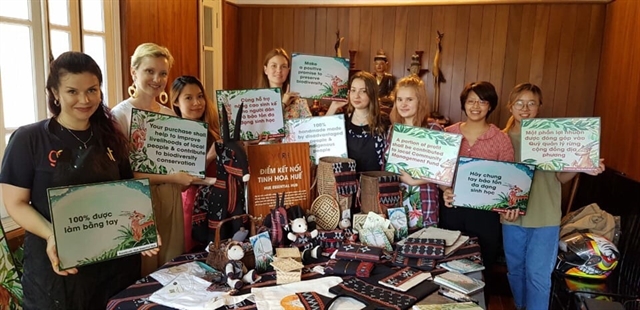The project aims to develop livelihoods for forest-dependent locals, reducing the on forests resources via wildlife hunting and non-timber forest product exploitation.

The Viet Nam Rural Industries Research and Development Institute (VIRI) under the Ministry of Science and Technology on Saturday introduced sustainable products from a project in the central province of Thua Thien-Hue.
Funded by the USAID Green Annamites, the project aims to develop livelihoods for forest-dependent locals, reducing their dependence on forests resources via wildlife hunting and non-timber forest product exploitation.
Through a market-oriented value chain approach, VIRI and USAID Green Annamites have promoted sustainable production and responsible consumption of local products like medicinal plants and handicrafts.
The project is expected to generate direct income for about 280 people and link the markets for some co-operatives and small- and medium-sized enterprises in the province.
In addition, 2 per cent of sales revenue will be raised from participating entities to contribute to the local community forest management and protection fund.
With a value chain approach, they will support local people in natural rattan harvesting techniques as well as standard planting and harvest process of medicinal plants. They will also enhance the management and business capacity of affiliates and co-operatives to meet market demands and add value to products.
The project will also help strengthen co-operation among people, co-operatives and businesses to ensure stable output for the products.
In addition, the project will support the construction of three elite networking centres in Hue and a communication channel through Facebook, helping co-operatives and businesses participate in trade fairs.
The hope is consumers will understand that buying and using local products contributes to improving the livelihoods of ethnic minorities, as well as protecting forests and biodiversity. — VNS





